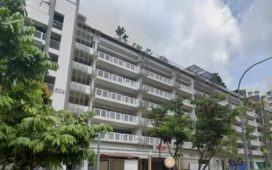SINGAPORE – The Ministry of Home Affairs and Corrupt Practices Investigation Bureau (CPIB) will review the laws which allow profits from corruption and other crimes to be confiscated without having to secure a conviction against the suspects.
This will be part of the Government’s commitment to discourage profiting from crime, said Minister in the Prime Minister’s Office Indranee Rajah as she responded to questions from MPs on the decision to not prosecute six former senior management staff of Keppel Offshore & Marine (Keppel O&M) over a multimillion-dollar bribery scandal in Brazil.
Earlier in February, Ms Indranee had explained that the cases could not go ahead as there was insufficient evidence to establish guilt beyond a reasonable doubt.
Instead the six, whose identities were not revealed, were issued stern warnings by the CPIB.
Mr Murali Pillai (Bukit Batok) suggested extending the extraterritorial reach of the Prevention of Corruption Act (PCA) beyond Singaporeans overseas to companies incorporated in Singapore.
Ms Indranee explained in Parliament on Friday that the current extraterritorial reach of the PCA is already quite broad and effective, and Mr Murali’s proposal of extending it may not be practical.
For corruption-related offences, the focus of the investigations would generally be the controlling minds or decision-makers of the company, who may be either Singaporean or non-Singaporean, Ms Indranee said.
The PCA already allows the CPIB to take action against Singaporeans, regardless of whether they committed the corrupt acts here or abroad. But going after non-Singaporean suspects for crimes committed overseas adds another layer of difficulty, she added.
“While Singapore is firmly committed towards international anti-corruption cooperation, consistent with our legal framework and international commitments, it would be a stretch to empower or require the CPIB to investigate activities taking place entirely outside Singapore, involving non-Singaporean actors,” said Ms Indranee, highlighting the expected difficulties when material evidence and key witnesses do not live in Singapore.
In the Keppel O&M case, the bulk of the evidence and oral testimony – which is crucial in securing a conviction – was not available in Singapore. That the prosecution of the six did not go ahead was not due to any lack of action on the part of CPIB, but had more to do with the nature of cross-border, international corruption cases, she said.
Several potential key overseas witnesses would not agree to come to Singapore to testify.
One foreign witness who had given evidence in other proceedings abroad was not willing to testify in Singapore, and the authorities here could not compel him to do so.
Progress Singapore Party Non-Constituency MP Hazel Poa asked whether the Government will consider appointing a committee to consult the public on any questions they want answered.
Ms Indranee said that the investigation process and evidence obtained in the course of investigations are confidential, and details are not provided to avoid prejudicing any action later.
The issue would concern investigating officers in the police and other investigation agencies, as it would mean that their entire investigation files would be open to question, she added.
“It is also something that every witness who has given, or will be giving, evidence in response to a request to assist the police or any investigation agency would need to take note of, as everything they say could go to the committee for questioning even before it is brought to court or proven,” Ms Indranee said.
Getting various investigators to open their files to questions is also not appropriate, she added.













